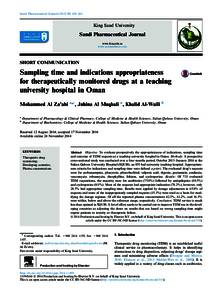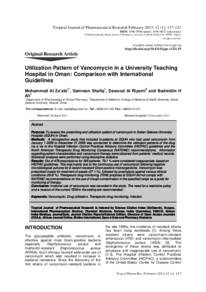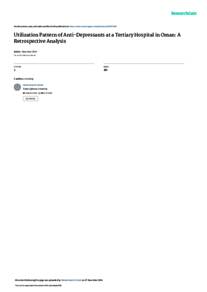وثيقة
Sampling time and indications appropriateness for therapeutically monitored drugs at a teaching university hospital in Oman.
المعرف
DOI: 10.1016/j.jsps.2014.11.005
المساهمون
Al-Muqbaliyah, Juhina., مؤلف
Al-Waili, Khalid., مؤلف
الناشر
Elsevier.
ميلادي
2015-09
اللغة
الأنجليزية
الملخص الإنجليزي
Objective: To evaluate prospectively the appropriateness of indications, sampling time and outcome of TDM requests at a teaching university hospital in Oman. Methods: A prospective cross-sectional study was conducted over a four months period; October 2013-January 2014 at the Sultan Qaboos University Hospital (SQUH), an 855 bed university teaching hospital. Appropriateness criteria for indications and sampling time were defined a priori. The evaluated drug's requests were for carbamazepine, phenytoin, phenobarbital, valproic acid, digoxin, gentamicin, amikacin, vancomycin, tobramycin, theophylline, lithium, and cyclosporine. Results: Of 733 evaluated TDM requisitions, the majority were for antibiotics (75.0%) followed by antiepileptics (10.5%) and cyclosporine (8.9%). Most of the requests had appropriate indication (78.2%), however, only 28.5% had appropriate sampling time. Results were applied by dosage adjustments in 65.8% of requests and some of the inappropriately sampled requests (15.3%) were used as a basis for modifying the dosage regimen. Of all the reported plasma concentrations 42.3%, 41.2%, and 16.5% were within, below and above the reference range, respectively. Conclusion: TDM service is much less than optimal in SQUH. A lot of effort needs to be carried out to improve TDM use in the developing countries as adjusting the doses on results that are based on wrong sampling time might expose patients to toxicity or therapeutic failure.
المجموعة
ISSN
1319-0164
URL المصدر
قالب العنصر
مقالات الدوريات



